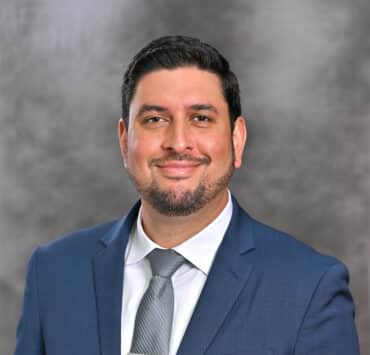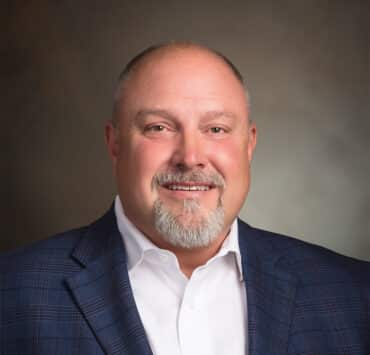AstraZeneca’s senior vice president and head of US Oncology, Mohit Manrao, practices the Japanese life concept of Ikigai. Loosely translating to “reason for being,” this concept informs his leadership style and drives him to go beyond and transform the oncology landscape and improve the outcomes for those living with cancer.
“When what you love is also what you get paid for, what the world needs, and what truly is your skill set, that’s when everything comes together and becomes your purpose of being. That’s how I feel about my job,” he says.
Manrao has two passions within healthcare. The first, which lies at the intersection of business, health, and purpose and conveniently aligns with his Ikigai, is the eradication of cancer as a cause of death. One of the greatest challenges that thwarts his efforts in this pursuit is a lack of education. “Often people are diagnosed late into their disease because they are not screened for various cancers,” he says. “Cancer screening is essential for timely detection and early treatment.”
Nearly half of cancer deaths and 42 percent of healthy years lost due to cancer are attributable to preventable risk factors, Manrao states. Individuals are often unaware of the types of screenings that are recommended based on their personal risk factors.
“AI has a growing and pivotal role across various facets of our operations. These advancements are revolutionizing drug discovery and design, allowing us to understand complex diseases across therapeutic areas with unprecedented speed.”
Mohit Manrao
“We need greater education around individual risk factors, which cancers can be screened for, who is eligible, and why it’s critical to detect cancer early through regular screening,” he says. “Every cancer detected earlier is a chance to save a life.”
Manrao and AstraZeneca remain committed to both their existing and new initiatives that are seeking to close the gaps in cancer screening. To that end, AstraZeneca recently unveiled a new initiative called Get Body Checked Against Cancer, a partnership with the National Hockey League and the National Hockey League Players’ Association. The goal is “to educate hockey fans around risk factors and ultimately empower them to talk to their doctors about available cancer screenings right for them,” Manrao says.
Manrao’s second passion is bridging priorities between the business and health sectors while accelerating AstraZeneca’s people-centered business model. For this, he leverages data and AI to improve patient outcomes. “AI has a growing and pivotal role across various facets of our operations. These advancements are revolutionizing drug discovery and design, allowing us to understand complex diseases across therapeutic areas with unprecedented speed,” he says.
Large-scale data analysis speeds up clinical development, increases its effectiveness, addresses health disparities, and improves access to innovative cancer care. “AstraZeneca’s commitment to adaptability and innovation ensures we remain at the forefront of leveraging emerging trends like AI to drive positive change and enhance patient care,” Manrao says.
Manrao earned a mechanical engineering degree from Punjab Technical University and later an MBA in strategy and marketing from Indian School of Business. He was hired by Godrej and Boyce Manufacturing as senior executive of marketing. Four years later he joined AstraZeneca as director of marketing excellence and was promoted to his current position in 2022.
“We need greater education around individual risk factors, which cancers can be screened for, who is eligible, and why it’s critical to detect cancer early through regular screening. Every cancer detected earlier is a chance to save a life.”
Mohit Manrao
As SVP and head of oncology, Manrao is responsible for the strategic direction of AstraZeneca’s expansive oncology portfolio, and he leads a multifaceted group that spans research and development, data, medical affairs, sales, and marketing. Recently he was appointed president of the AstraZeneca (HealthCare) Foundation and serves as the executive sponsor of the Accelerate Change Together (ACT) on Health Equity. “It’s transforming the way our company does business to improve access, affordability, and outcomes for patients in the disease areas and communities we serve,” he says.
As precision medicine and personalized healthcare continue to shape AstraZeneca’s approach to cancer treatment and propel it into a new era of healthcare, the pharmaceutical giant boasts a diverse portfolio of approved and potential medicines, spanning various disease stages and modes of action. “By leveraging groundbreaking science, we’re gaining deeper insights into the underlying biology of cancer. Our goal is to deliver targeted therapies that match each patient’s unique needs,” Manrao says.
At the core of this singular mission is a profound dedication to equitable access to therapeutic options.
“We’re steadfast in our efforts to ensure that these innovative treatments reach every patient, irrespective of their background or circumstances,” he says. “I’m enthusiastic about the potential of precision medicine not only to revolutionize oncological care but also to address disparities in access, offering tailored solutions that truly benefit all.”
When dispensing advice to individuals embarking on a career in healthcare, Manrao draws on the advice that profoundly shaped his career offered by the late José Baselga, renowned oncologist and a former colleague at AstraZeneca.
“Effective leadership isn’t about being the smartest person in the room but rather about asking the right questions and empowering the team to excel,” Manrao says. “This philosophy has guided my approach to leadership, reminding me of the importance of listening, learning from others, and unlocking the collective potential of the team.”


